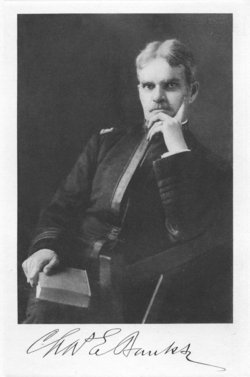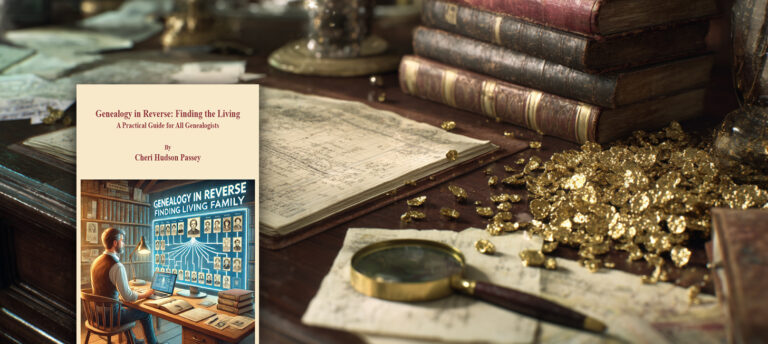
Charles Edward Banks: Great Genealogist & Great Man
Students of New England genealogy recognize Charles E. Banks (1854-1931) as one of the patriarchs of genealogical scholarship. During his lifetime, he was widely acknowledged to be one of the leading authorities on northern New England families. His two-volume “History of York, Maine” (a third volume was in preparation at the time of his death) is still the starting point on its subject. Though removed from his primary geographical area of expertise, Dr. Banks’ three-volume history of Martha’s Vineyard is also a model local history.

Notwithstanding his fame as a genealogist, Banks’ first calling was as a physician and surgeon. A graduate of Dartmouth Medical School, Charles Banks enjoyed a distinguished 40-year career in the U.S. Public Health Service. Dr. Banks was involved in many activities, including early efforts to thwart polio and to enforce sanitary laws. He achieved the position of assistant surgeon-general of the USPHS, retiring with the rank of lieutenant-colonel.
Besides his interests in genealogy and history, Banks was a skillful artist. His drawings adorn several of his publications. He is also reckoned to have been gracious, kindly, and un-self-serving. He was never reluctant to share the fruits of his research with friends and colleagues.
Genealogist Banks is probably best known today as the author of four works focused on the origins of English Protestants who came to Massachusetts Bay between 1620 and 1650. The first of these books, The English Ancestry and Homes of the Pilgrim Fathers, features sketches of every passenger who came to Plymouth on the “Mayflower” in 1620, the “Fortune” in 1621, and the “Anne” and the “Little James” in 1623. Banks published two books the following year: The Winthrop Fleet of 1630, the appendix to which accounts for every Puritan who traveled to Massachusetts Bay with John Winthrop; and Planters of the Commonwealth, 1620-1640, a chronological list of all vessels and their passengers known to have docked in New England during this era. Banks’ Topographical Dictionary of English Emigrants. . . 1620-1650 was actually edited and published by Elijah Brownell in 1937, six years after the good doctor had died. This book extends the author’s published findings by another 10 years. The passengers are arranged by English county (shire) and, when available, are identified by parish, ship, New England town of destination, and source.
Banks’ four books on English emigration to 17th-century New England are genealogy classics. Since it is unusual for us to have all of them in print simultaneously, now is an excellent time to avail yourself of the findings of one of the greatest students of our Yankee origins.
The English Ancestry and Homes of the Pilgrim Fathers
This critically acclaimed work contains biographical sketches of 112 passengers who sailed on the first four ships to New England. Along with data on the passengers’ origins, family connections, and later histories, it substitutes proof for guesswork and blows holes in many cherished traditions. Many little-known facts about their places of residence in England and their parentage and ancestry are given. View Book Details
This is an authoritative list of the 700 passengers who are believed to have come to New England with John Winthrop in 1630. Based on research undertaken in England and America, it provides as much data as could be verified on each passenger–name, place of departure, places of residence in England and America, occupation, church affiliation, dates of birth, marriage, and death, and relationships to other passengers. View Book Details
Planters of the Commonwealth, 1620-1640
Scrupulous in every detail, this work contains the names of 3,600 passengers on the 96 ships that brought them to New England between 1620 and 1640. Working with the same records employed by Savage, Drake, and Hotten, and with records unknown or inaccessible to them, Dr. Banks here pulls the several classes of records together to form the most complete and authoritative collection of passenger lists for the period ever published. In addition to the names of passengers and ships, places of origin, and places of residence in America, the book includes indexes to surnames, ships, English parishes, and New England towns. View Book Details
Topographical Dictionary of English Emigrants. . . 1620-1650
This “Dictionary” comprises notes on nearly 3,000 emigrants, giving their English homes, names of ships in which they sailed, towns in which they settled in New England, and references to the printed or manuscript sources from which the information derived. View Book Details
Recent Blog Posts



